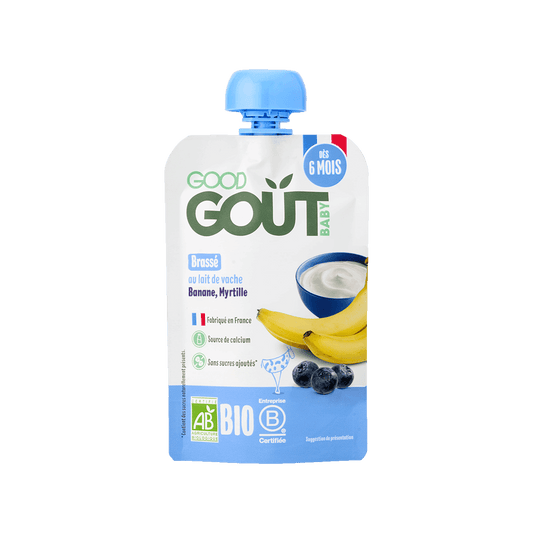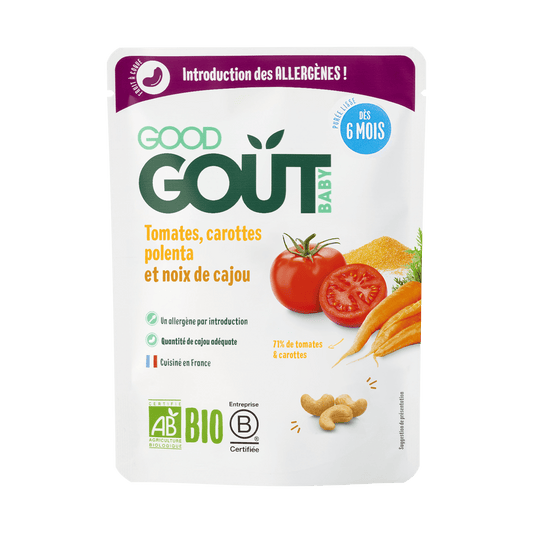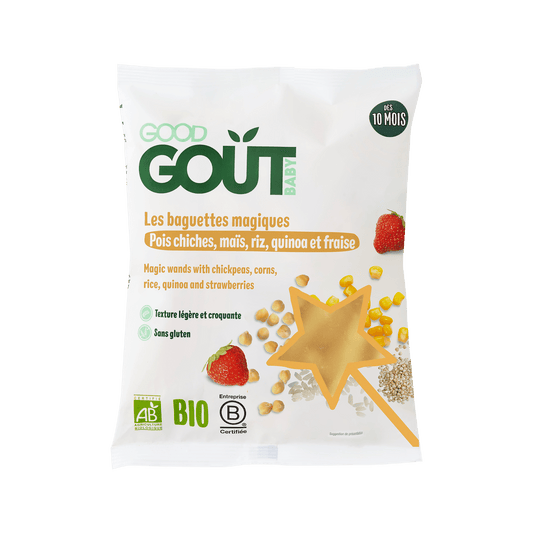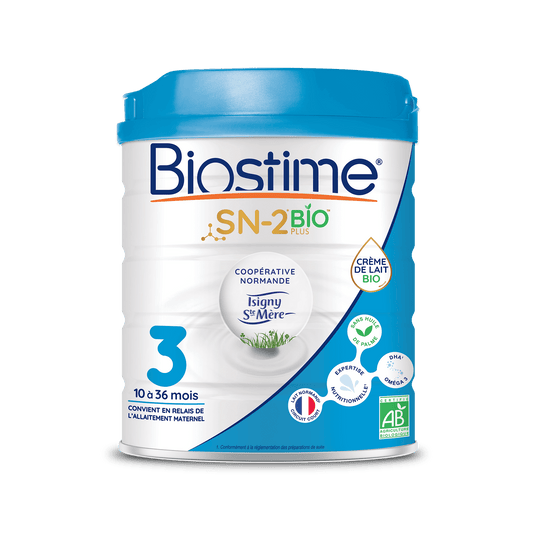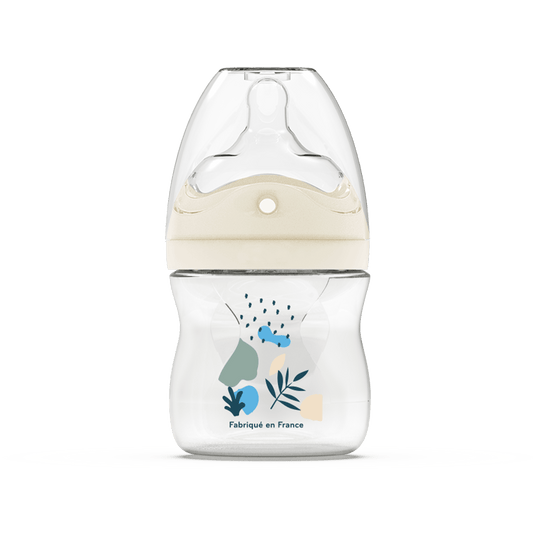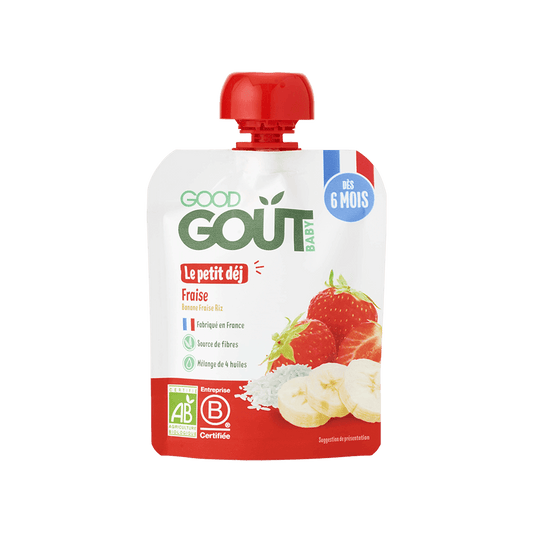At Good Goût, we've chosen to give our little ones the best by cooking organic fruits, vegetables, fish, and meat. Just like "at night, all cats are gray," "from a distance, all chickens are healthy," and so on, the only thing a "classic" chicken has in common with an "organic" chicken is its beak and feathers! So play the 7 differences game with us to better understand what you're buying.
Pampered poultry for less stress
1- First of all, only rustic breeds can claim to be organic because they adapt better to outdoor farming, their growth is slower and their flesh is of better quality.
2- Unlike conventional chicken, organic chicken is raised outdoors for most of the day. This gives them a great deal of freedom: more space, more light, contact with the natural elements, and therefore less stress. It works the same way with us, in the end: why choose a crowded subway car when you can go for a bike ride?
Well-fed poultry for healthy growth
3- The diet given to organic chicken is healthier, more balanced and above all worthy of a granivore and not a carnivore! Indeed, organic chicken feeds on what it finds in nature as well as 95% organic cereals and legumes without GMOs or chemical substances, while industrial chicken can consume animal fats and flours, as well as soy (GMO).
4- As a result, organic chicken grows more slowly than industrially produced chicken. This is why it is slaughtered at a minimum of 81 days old, compared to 42 days for industrially produced chicken. Slaughterhouses guarantee controlled hygiene conditions and specific expertise.
Healthy poultry for healthy toddlers
5- Organic chicken is more nutritionally beneficial. It's richer in Omega-3 than industrially produced chicken (especially if it includes flax seeds). It also contains more polyphenols, which are powerful antioxidants, more vitamins (especially vitamin C), and more magnesium.
6- What about pesticides? They remain extremely rare in organic chicken meat, whereas they are found in large quantities in conventional chicken.
7- Last important point: the care given to the chickens. Unlike organic chicken, industrial chicken receives a lot of antibiotics, vaccines, and (growth) hormones. Whereas organic chicken is treated more naturally with homeopathy, herbal medicine, and even aromatherapy (essential oils).
Now that you know how to tell them apart, all you have to do is cook it...
...or turn to our delicious organic carrot-chicken dish (and its hint of clementine juice!).
Sources:
http://www.annuairevert.com/p81-la-volaille-bio.php http://www.toutsurlavolaille.com/article-types-volailles-selon-labels.html http://www.biolineaires.com/articles/focus-produits/254-poulet-de-chair-bio-:-lequel-choisir-%28suite%29.html#.UyHb2oXCaDA

